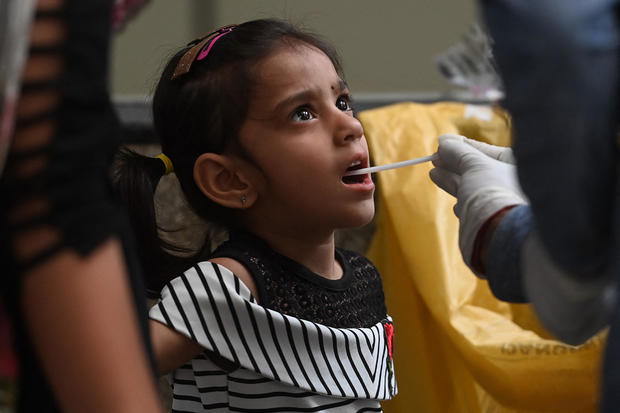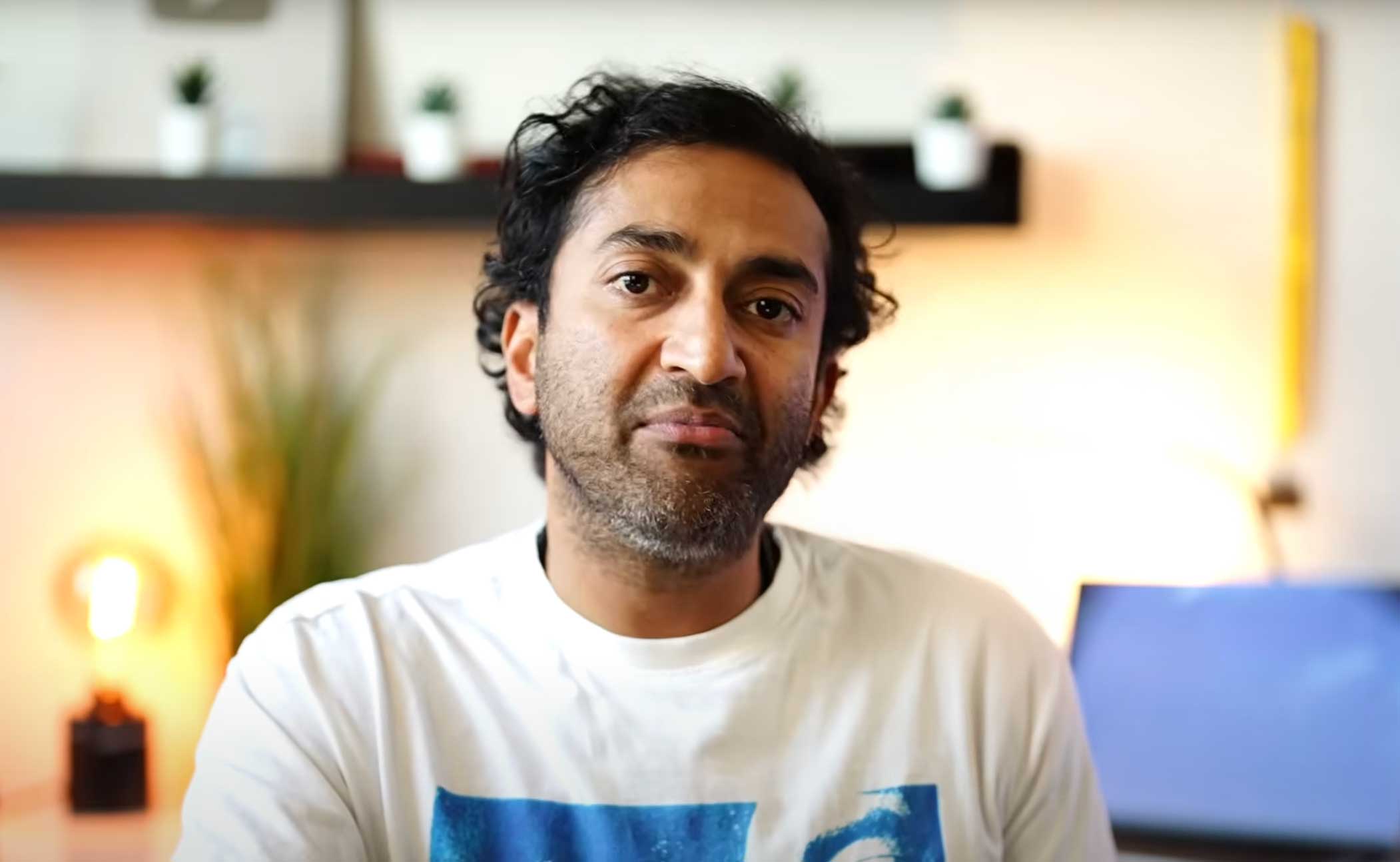India expands COVID restrictions and boosts vaccination program amid a 2nd wave of infections
New Delhi — The number of new coronavirus cases recorded in India has been rising steadily for a month, pushing the country into a second wave as daily infection rates inch back toward those seen during the worst of the pandemic. More than 375,000 new COVID-19 cases have been reported over the last 10 days, and the Health Ministry confirmed 47,262 on Wednesday alone, taking India's total number of confirmed coronavirus infections over 11.73 million.
The disease has claimed more than 160,000 lives in the country.
"The main reason why cases are increasing is because there are large crowds, poor compliance with wearing of masks and social distancing, and insufficient vaccine penetration," Dr Ramanan Laxminarayan, founder and director of the Center for Disease Dynamics, Economics & Policy in Washington D.C., told CBS News.
India saw case numbers peak in September, when almost 100,000 infections were being reported daily, but those numbers dropped sharply over the winter to about 10,000 daily cases. Now experts fear the country is well into a second wave, though they're hoping it won't be as deadly as the first.
"Unlike the first wave, which would have engulfed the country because of the lack of local capacity to deal with COVID-19, state and local authorities are much better prepared now," said Laxminarayan. "Mortality rates will be lower this time because clinicians have a much better handle on how to manage severe COVID disease and to even prevent it from becoming severe. So, while cases may be high, the case fatality ratio will likely be lower than in 2020, unless there is a new variant that changes the equation."
But Dr. Randeep Guleria, head of India's most prominent public hospital, the All India Institute of Medical Sciences (AIIMS), who's also part of the government's coronavirus taskforce, warned last week that the second wave could be as severe as the first unless people follow government guidelines and get vaccinated.
New variants
Fueling those concerns is news from scientists that at least 800 cases of coronavirus variants first detected in the U.K., South Africa and Brazil have now been detected in 18 Indian states.
A consortium of 10 national laboratories working with India's government said this week that it was also monitoring a new "double mutant variant" of the coronavirus detected in Mahahrashtra state. Like the other strains "of concern," this new one appeared to have some resistance to antibodies and "increased infectivity."
While the scientists said none of the variants appeared to be circulating widely enough yet to cause the wider surge in cases, they called on authorities to ramp up testing, track the strains closely and ensure any new cases were quickly isolated, with all contacts rapidly traced.
Restrictions and vaccinations
Some of the states with the highest daily case rates have been re-imposing restrictions, including shutting down schools, banning gatherings and enforcing night-time curfews in the hardest-hit districts.
Laxminarayan told CBS News that weak health care systems and low testing capacity in some states could be obscuring larger outbreaks than current figures reflect.
India's capital of New Delhi, which hasn't been hit too hard yet by a second wave of infections, has ordered random COVID testing of passengers at its airports and railway and bus stations.
The federal government has issued guidelines to states, calling on them to prevent large crowds during upcoming festivals of Holi, Shab-e-Barat, Navratra, Easter, and Eid. On Wednesday, the government asked states to enforce restrictions and precautionary measures, and to consider fines for violators.
But the federal government also urged states not to curtail any economic activities outside of designated containment zones, trying to avoid a repeat of the devastating economic impact of last spring's total lockdown.
The sharp rise in cases has also prompted Indian government to expand its vaccination program. From April 1, everyone aged 45 and above can is eligible for vaccination. Currently only those over 60, or over 45 with conditions that make them more vulnerable, are allowed to get a shot.
India has inoculated more than 50 million people since mid-January, when it launched the world's largest vaccination drive. But that's still less than 4% of the country's 1.32 billion people. The government hopes to vaccinate 250 million people by the end of July.




